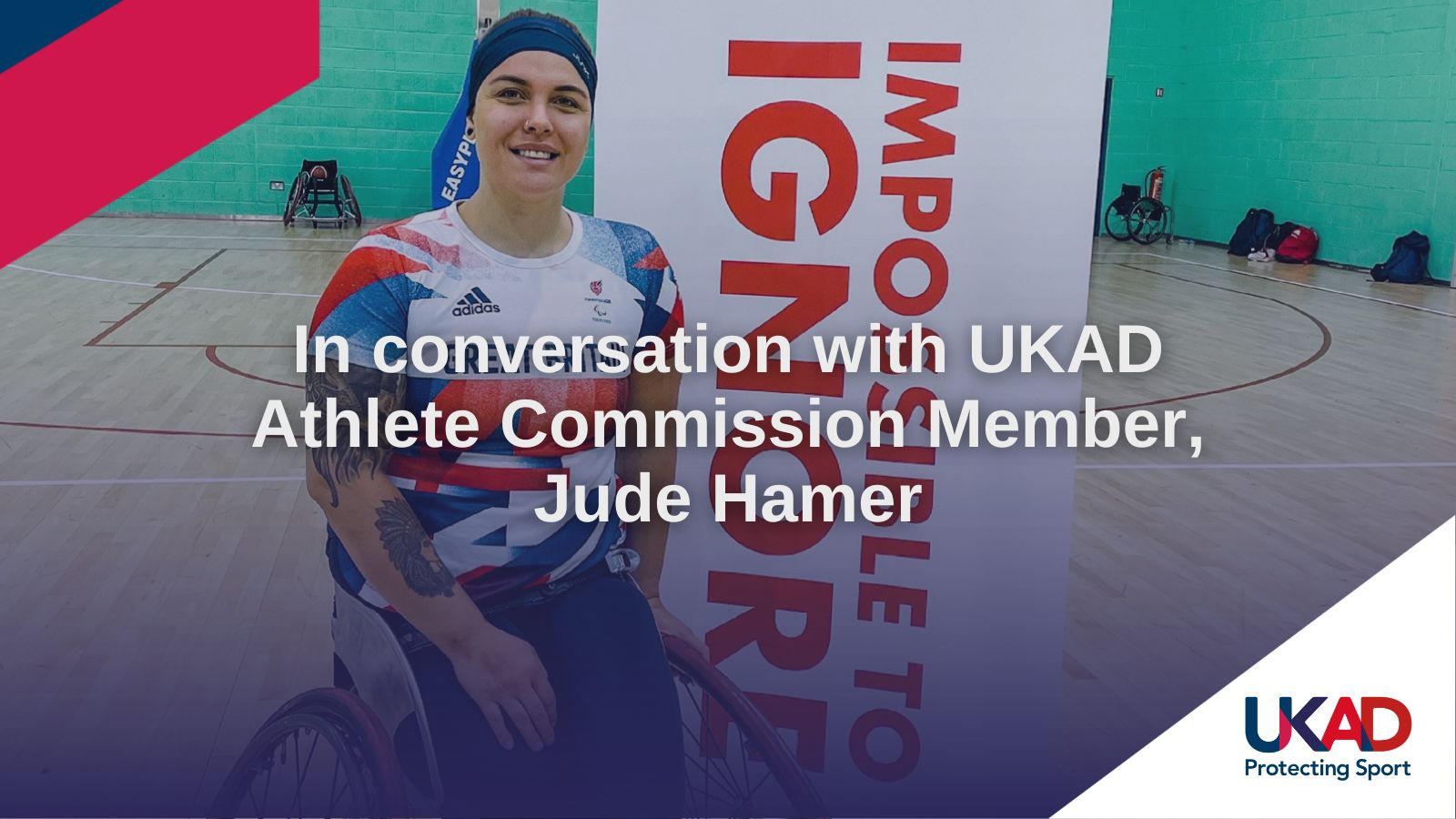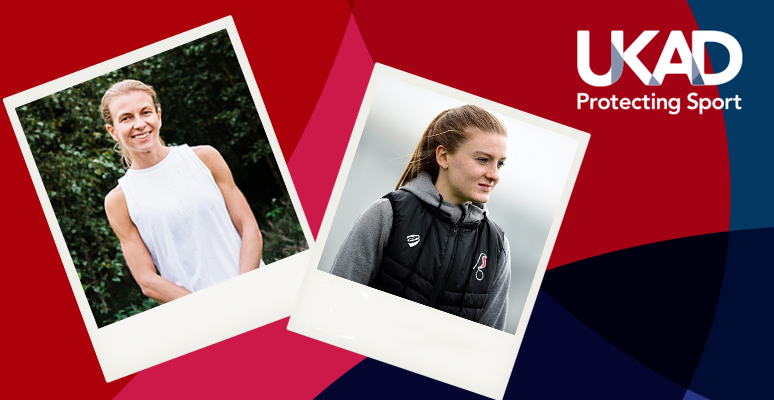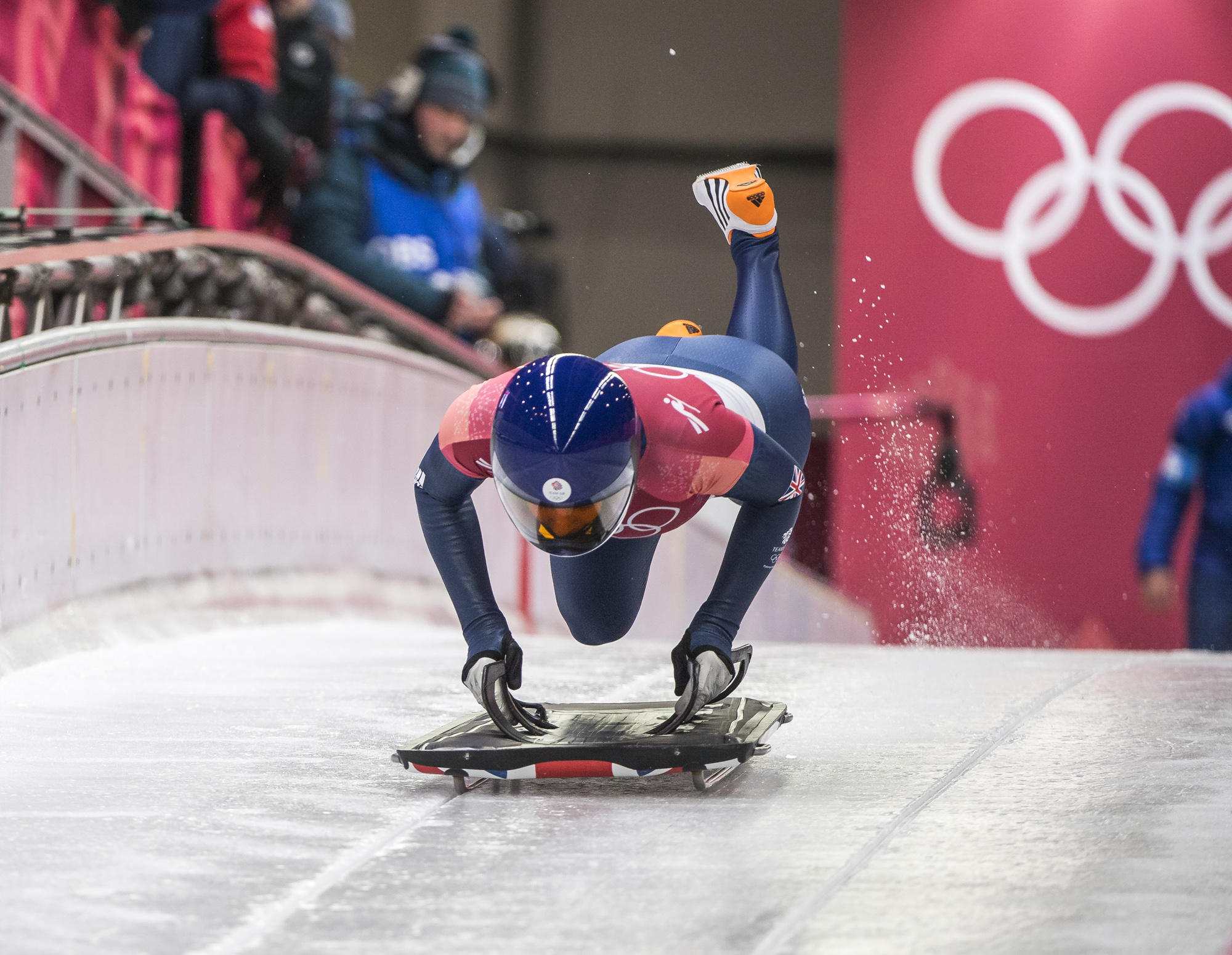LGBT History Month: In conversation with UKAD Athlete Commission Member, Jude Hamer
Jude Hamer is a three-time Paralympian and GB Wheelchair Basketballer. Born with a short thigh bone in her right leg, and after countless operations as a child, Jude took the decision in 2006 to have her leg amputated below the knee. Hear from Jude in conversation with UKAD about her journey into elite sport, the support of her team, and the hard work and determination that got Jude to where she is today in sport.

1. What are your earliest memories of sport growing up?
My route into sport is not the traditional. I am not like a lot of other athletes I know who wanted to be athletes from day dot. I was very much the opposite end of that and wanted to do very well at school because I didn’t know sport was accessible for me. My earliest memories of sport are my sister playing football and rugby and my Dad taking me swimming. It wasn’t until I was 15 when I found wheelchair basketball as a hobby after school when I felt like a sport was inclusive and I felt like I could play without worrying about my leg or worrying about hurting myself. It was just about being in a wheelchair in sport and going as fast as I could and playing basketball with people who were like me.
2. Who inspired you to take up Wheelchair Basketball? What does a role model mean personally to you?
People within my sport who made it possible for me to play the sport were my role models, like old teammates of mine who I played with - the amount of support they gave me at first, they picked me up and took me to training, got me in with coaches so I could go and play. Without their support I would not have made it into the GB programme.
“I never expected to be an athlete, I’ve been an athlete for 15 years. I’m proud of sticking at it and working at it and becoming very good at what I do.”
3. How do you go about preparing yourself for a big game?
There are some games I get very nervous for and other games, it depends on the teammates I have around me and what the vibe is at the time. The thing I love about team sports is that you are expected to do your job and you need to step up and perform for your teammates, but also it’s about the team performing so if you are putting so much pressure on yourself and all you can think about is what you need to do, you probably aren’t going to do the best job for the team.
Sleep is very important for me and that is the number one thing I am concerned with in terms of recovering and preparing when it comes to competing and training. Making sure I am fuelling myself properly the day before, especially when I know it is a big game. I try and have a good meal and feel well fuelled and then try and be as relaxed as possible and do something nice the morning of the competition to keep my head out of basketball for a bit.
4. As an elite athlete, why do you think it is important to be a voice of your community in sport?
A sense of identity and individuality is something that can be quite easily lost in a team environment. You train so much as one unit you become one entity and not separate beings and for me that is a massive part of me being happy and enjoying my sport. Being a basketball player is not the be all and end of all of who I am.
I think it’s important to represent my community and I have a small platform to have some say. I think that it can be difficult being a LGBT athlete. There are some opinions that may not please a majority, but I don’t necessarily want to support the majority, I want to support other LGBT people and athletes. I think that is really important, that you are speaking out for your community and for those athletes in your community who aren’t as well represented and supported. I don’t always feel that confident, but if people are looking at me and thinking that I am outwardly projecting who I am and not just fitting in, and other people feel they can do the same, then that is amazing.
"I feel it is important that we are asking for opinions on how different people see the world and how the world sees them - the more opportunities we have for people to use their voice and speak out, the better."
5. What can sports and anti-doping organisations learn by listening more to LGBTQIA+ athletes and allies?
I think it’s important that we bring these people into the conversation when it comes to decisions being made. My challenge on UKAD’s Athlete Commission is usually have we spoken to these people that this is affecting and what do they need from us as a body to support them. A comparison with disability sports, I can’t assume as an amputee that I know what a blind person needs, I don’t and I don’t know what that person needs because I’ve never lived that life.
I think sports and anti-doping organisations need to create as many opportunities as possible for those athletes, to share their experiences and what they need to feel supported and listened to in sport. It’s very easy to project and be asked to talk a lot about LGBT articles and areas that aren’t fitting in with who I am, and I don’t think it’s right for me to speak out on behalf of all of the community because I don’t have all these experiences. I feel it is important that we are asking for opinions on how different people see the world and how the world sees them - the more opportunities we have for people to use their voice and speak out, the better really.
6. What experience would you pass on to an LGBTQIA+ athlete just setting out on their sporting journey?
I didn’t come out until I was playing sport, and I didn’t until I found someone I trusted and could talk to about it. It doesn’t have to be another teammate it can be a coach you trust, or support staff you trust and you feel will support you in that journey. It doesn’t have to be a massive song and dance. You don’t have to tell anybody if you don’t want to, and only if it is really necessary. Unless they’re confident in being openly gay, then don’t feel you are forced into it. Go along on that journey when you’re ready to.
7. What does clean sport mean to you?
I don’t think there should be sport unless it is clean. I think it is so important. From a young age athletes are taught how to be a clean athlete, how to put food first, to have ingrained that you are checking what you are taking, sleeping properly and getting your recovery and nutrition checks done. For me I would never want to win anything if I had done it dishonestly. Young athletes understanding the impact of being a clean athlete versus not being a clean athlete, especially in a team sport where your actions impact the team. I wouldn’t want to win if I wasn’t doing it clean.
8. What are you most looking forward to this year?
We have the World Championships in June, there is a month between that and the Europeans in Rotterdam qualifying for Paris 2024. At Tokyo 2020 the team expected to medal and I think we still have a team to do that. For me, this may be my last Paralympics (that would be four), and it would be really nice to come away with a medal.



